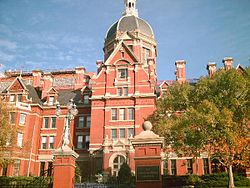
Heartburn. A common complaint and the hallmark of acid reflux from the stomach into the esophagus. For some it’s mild and intermittent and for others it can be severe and unrelenting. Obesity predisposes to reflux, as also for diabetes, and the heartburn that results; not surprising that GERD worsens the quality of life for many Americans.
How to treat? Depends on the severity of symptoms. As alluded to above, losing some weight if one is on the heavy side will diminish the amount of reflux and the accompanying heartburn; I had patients that lost enough weight that the heartburn disappeared. The reasonable next step is to begin to take over-the-counter antacids which mix in the stomach and neutralize the acid. If heartburn persists then either drugs that diminish acid secretion by the stomach (called H2 blockers) such as Pepcid, Cimetidine, Omeprazole, and Famotidine) can be used. Another medication option is a class of drugs that really completely stop acid production. These are called proton pump inhibitors (a proton is a hydrogen atom); examples are Zantac, Prevacid and Nexium. There are side effects of all these drugs with the most worrisome being cancer which has been—but only rarely—associated with the proton pump inhibitors.
When medications lose their efficacy or regurgitation of stomach contents persist options include the insertion of an endoscopic device to strengthen the resistance to reflux or a true surgical procedure. Also, there are younger patients who do not want to take medications for many years may opt for an operation.
Having performed several hundred laparoscopic Nissen fundoplications for GERD I believe that when surgeons who regularly operate for GERD select appropriate patients and obtain necessary preoperative tests that the operation is safe and highly effective with minimal side effects.

